14 easy AND healthy snacks

Most modern-day snacks are a nutrition disaster and one of the main reasons why many of us are gaining too much weight. We graze, but not on anything healthy and not on anything moderate in portion size either. So should you cut out all between-meal snacks? Or should you make the snacks you eat better for you?
6 reasons modern snacks are not good for you
- Most popular snacks today - whether they’re an ice-cream or a tub of hot chips - are more than a quick bite. They’re really a mini-meal with too many kilojoules (Calories) and too much sugar and salt. I’m thinking of things that are either:
- fatty and sugary (like chocolate bars, muffins, doughnuts, lollies and biscuits) or
- fatty and salty (bags of potato crisps or corn chips, fries, hot chips or savoury crackers like Chicken Crimpy or Shapes).
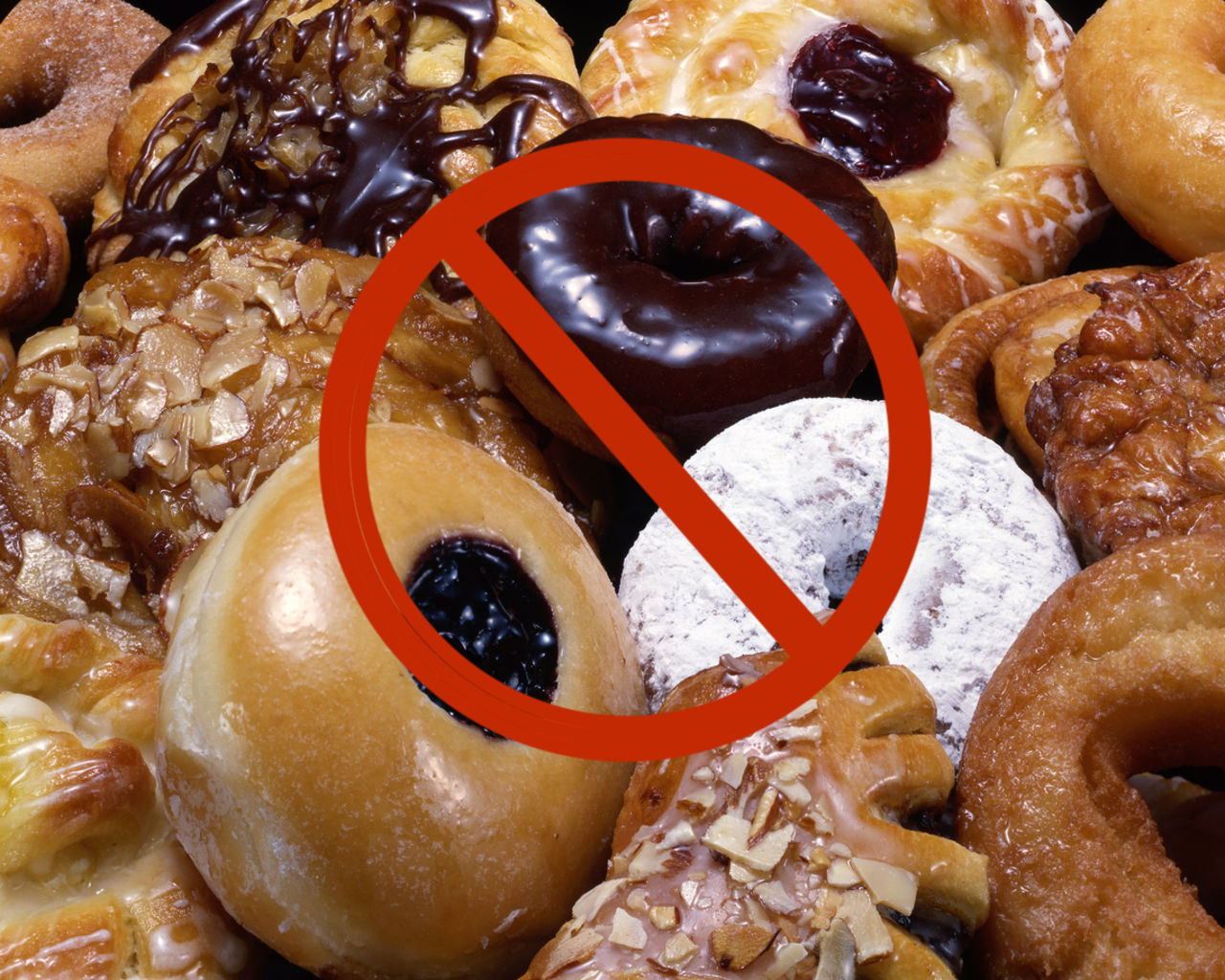
Take doughnuts, for instance. Two cinnamon doughnuts pile on 20 grams of fat and over 2000 kilojoules (500 Calories), which is one-third of the day’s recommended intake for the average sedentary woman.
And most of that fat is the ‘bad’ saturated fat, the type that clogs arteries and thickens your waistline. A large Danish pastry or a bucket of hot chips does the same.
- Most snacks are ‘processed’ and don’t contribute many of the essential nutrients we need for health.
- Most popular snacks are digested and absorbed quickly – and leave you hungry again soon.
- Snacks can also pack a lot of kilojoules into a small volume so you overeat before your stomach feels full. They have what nutritionists call a “high energy density”.
- At the other end of the scale there are those sancks that come in too large portions that are easy to over-consume. For the cost, they are simply too generous! Think of those huge bottomless buckets of movie popcorn, jumbo bags of potato chips, family blocks of chocolate that somehow always get eaten, party-bags of lollies and giant tubs of ice cream.
- Snacks encourage mindless eating in front of a movie or on the computer! When questioned in surveys, most of us fail to recall what we eat between meals. We ‘forget’ the biscuits with our morning coffee, the pack of crisps on the drive home in the car, the nibbles before dinner and the popcorn at the movies.
Snacking itself not bad
Despite the above, spreading your total food intake over meals and snacks can be helpful particularly for three groups:
- Children with their small stomach capacity. If your child can’t sit still for long enough to eat a full dinner, small snacks keep them topped up – as long as they’re nutritious. So a tub of yoghurt tops up their calcium, a mandarin tops up their vitamin C and so on.
- People with diabetes can keep their blood sugar steady if they spread their ‘food load’ into 5 or 6 smallish meals. They may start with cereal and fruit, then at 10.30am snack on a slice of toast with cheese, then have a sandwich at 1pm, a nut bar in the afternoon with a pear.
- Dieters can burn more fat and shrink their stomach by switching to mini-meals.
Choosing healthy snacks
Snacks should be small in size and lower in kilojoules (calories), fat and added sugar than meals. Try one of these:
7 snacks to keep in the desk drawer
Keep a stash of these long-life items at work for times when you can’t get out to grab something fresh.
-
Snack packs of almonds, walnuts or unsalted mixed nuts
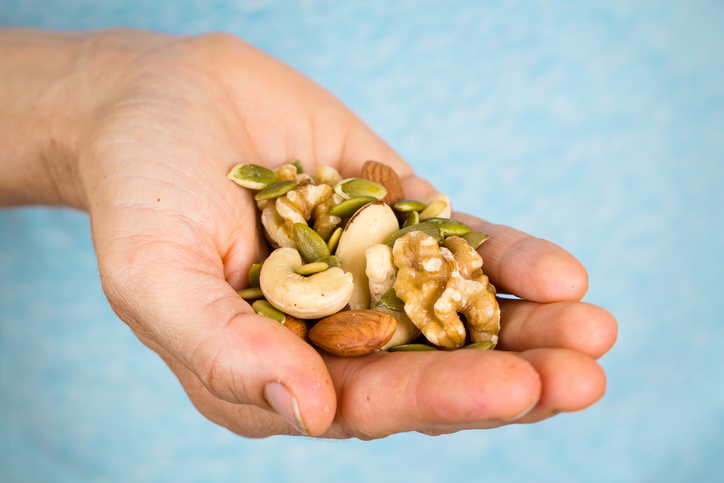 I love snacking on nuts but have to watch my intake as I can happily chow down 75g in one sitting. So on the weekends, I make up 4 or 5 snack packs to have on hand when working. Allow a good handful or 40 to 50g nuts per snack. If you have high cholesterol, nuts make the perfect go-to snack as they deliver heart-smart nutrients like monounsaturated fat, fibre, magnesium and vitamin E.
I love snacking on nuts but have to watch my intake as I can happily chow down 75g in one sitting. So on the weekends, I make up 4 or 5 snack packs to have on hand when working. Allow a good handful or 40 to 50g nuts per snack. If you have high cholesterol, nuts make the perfect go-to snack as they deliver heart-smart nutrients like monounsaturated fat, fibre, magnesium and vitamin E.
-
Tiny tins of tuna
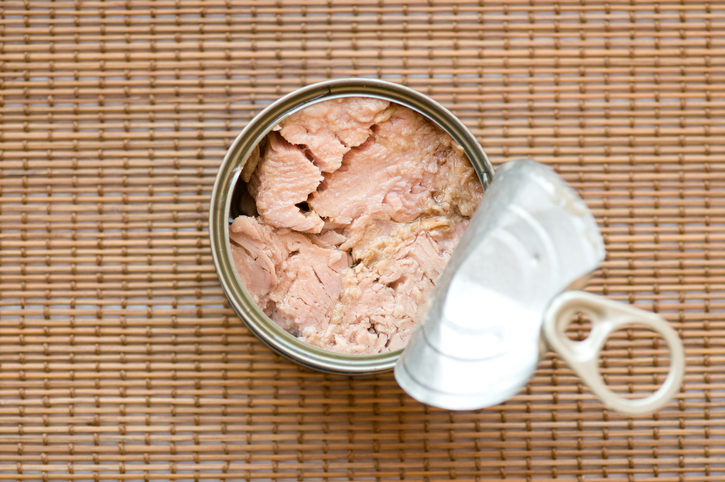 I like these small portable cans with interesting flavours like lemon and chilli, onion, tomato. Ring-pull lids make them easy to open and there are some with almost no liquid. Keep a couple of plastic forks handy so you can down one. High in protein, zinc and iron which most women need. Don’t forget you can now buy combo-packs of wholegrain crackers packaged up with tinned tuna.
I like these small portable cans with interesting flavours like lemon and chilli, onion, tomato. Ring-pull lids make them easy to open and there are some with almost no liquid. Keep a couple of plastic forks handy so you can down one. High in protein, zinc and iron which most women need. Don’t forget you can now buy combo-packs of wholegrain crackers packaged up with tinned tuna.
-
Crunchy peanut butter
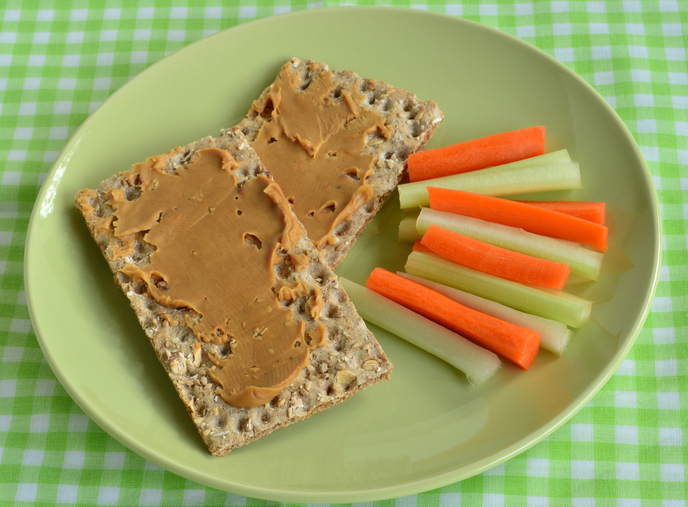 Spread it on wholegrain crackers or a rice cake or on celery lengths if you are on a diet. I prefer the thickish crunchy kind as it tastes more like real peanuts. A small jar is a great stand-by in the office.
Spread it on wholegrain crackers or a rice cake or on celery lengths if you are on a diet. I prefer the thickish crunchy kind as it tastes more like real peanuts. A small jar is a great stand-by in the office.
-
Pumpernickel or crispbread with cheese
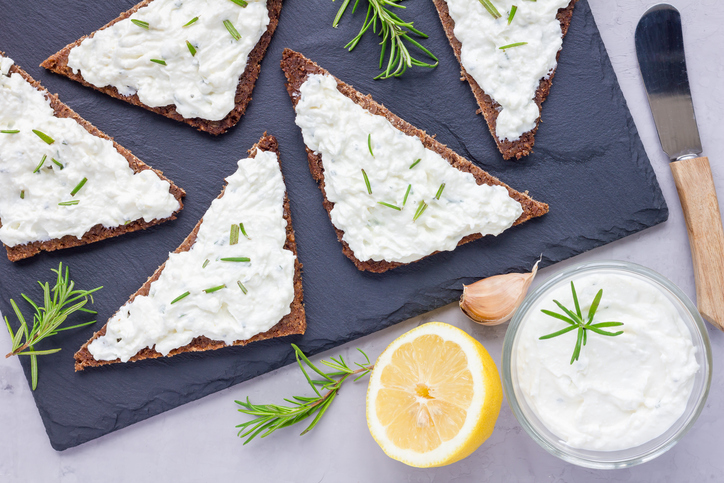 Long-life pumpernickel makes a filling wholesome snack topped with cheese. Alternatively opt for single-serve stay-fresh packs of wholegrain crispbread or crackers or corn thins:
Long-life pumpernickel makes a filling wholesome snack topped with cheese. Alternatively opt for single-serve stay-fresh packs of wholegrain crispbread or crackers or corn thins:
- 3-4 Vita-Weets or
- 8-10 wholegrain mini-rice crackers or
- 2-3 multigrain corn thins
-
Nut bars
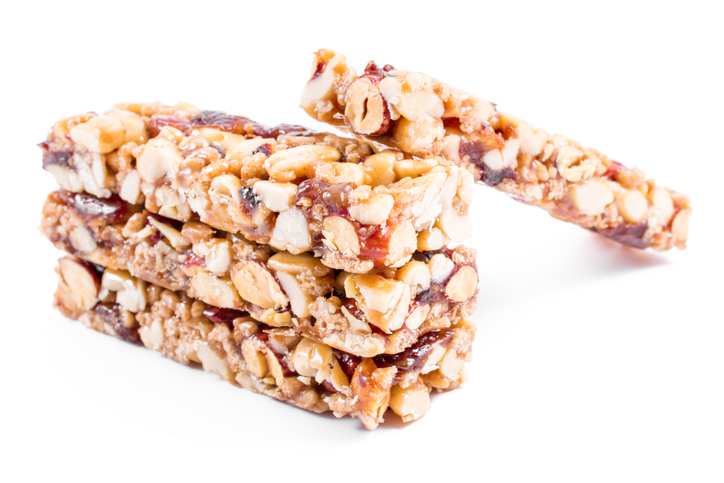 These look like the usual muesli bar but have more nuts than grains. Some have no fruit, some are mixes of nuts with sultanas, apricots and apple. I really like Be Natural nut bars as well as Go Natural. They fit in my handbag well.
These look like the usual muesli bar but have more nuts than grains. Some have no fruit, some are mixes of nuts with sultanas, apricots and apple. I really like Be Natural nut bars as well as Go Natural. They fit in my handbag well.
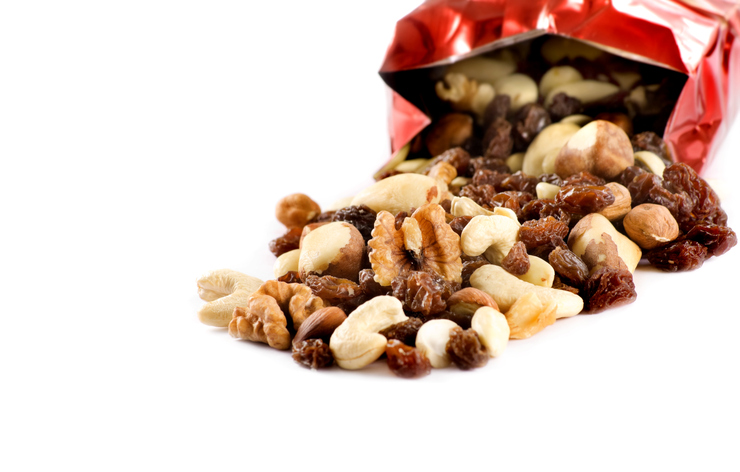 6. Trail mix pack with nuts, seeds and dried fruit
6. Trail mix pack with nuts, seeds and dried fruit
I do find trail mixes more interesting than straight nuts, but both have their place. At times I’ll pack up 3-4 dried apricots with pecans or almonds to snack on. Or dried cranberries team well with walnuts or a few Brazils.
-
Fresh fruit
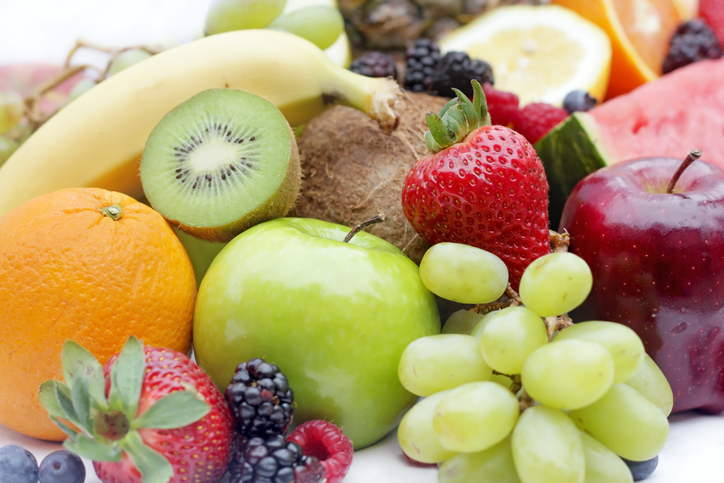 Always healthy and refreshing. Convenient non-messy ones include mandarins, apples, banana, a tub of blueberries, a firm pear, plums and a container of grapes. Mini-tubs of diced pears or apricots are handy when you run out of fresh.
Always healthy and refreshing. Convenient non-messy ones include mandarins, apples, banana, a tub of blueberries, a firm pear, plums and a container of grapes. Mini-tubs of diced pears or apricots are handy when you run out of fresh.
7 snacks to keep in the work fridge
-
Tub of yoghurt
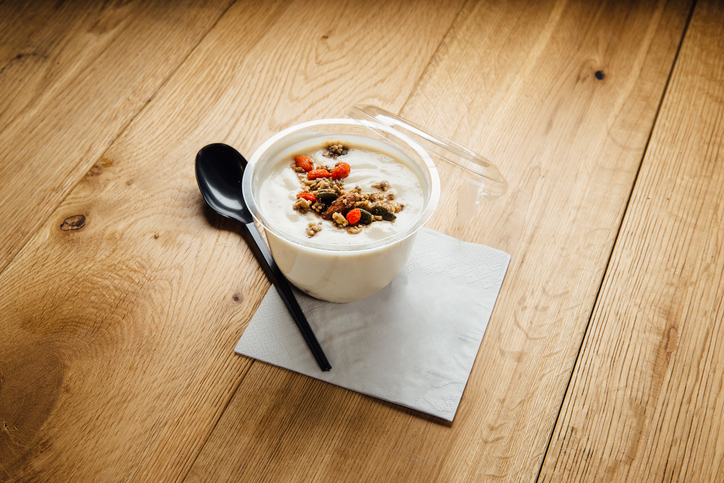 Yoghurt is good as it’s high in protein and calcium, low GI and lasts the distance too.
Yoghurt is good as it’s high in protein and calcium, low GI and lasts the distance too.
Don’t bother with the diet types. They’re too flimsy and not sustaining.
Buy a regular plain or fruit type or one of the lighter Greek yoghurts.
-
Avocado
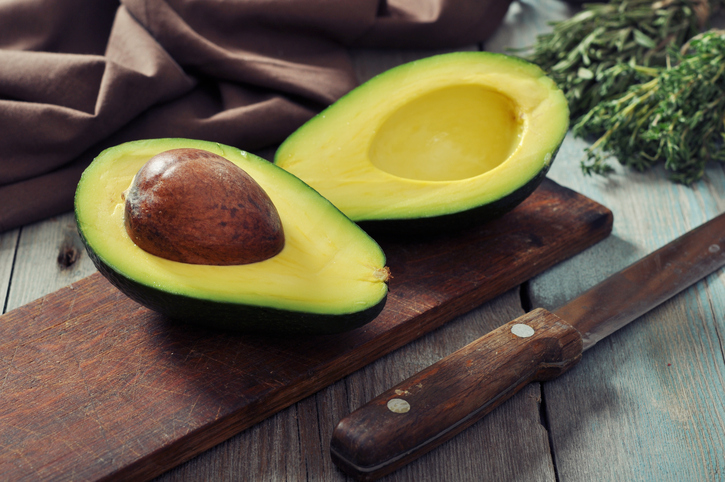 Nothing easier than a small avocado to get you through the mid-afternoon slump. Buy one that’s the right size to get through in one go. Squeeze the end slightly to see if it’s ripe. Avo’s make a great no-carb snack and give you healthy monounsaturated fats like the ones in olive oil. I like them as they’re filling so take you through to dinner.
Nothing easier than a small avocado to get you through the mid-afternoon slump. Buy one that’s the right size to get through in one go. Squeeze the end slightly to see if it’s ripe. Avo’s make a great no-carb snack and give you healthy monounsaturated fats like the ones in olive oil. I like them as they’re filling so take you through to dinner.
-
Cheese slices or rounds
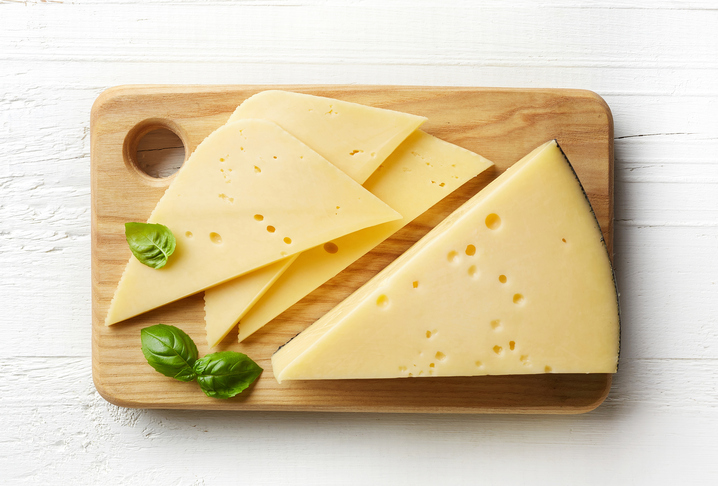 Nothing is quicker than cheese with pumpernickel or crispbread and it adds bone-building calcium.
Nothing is quicker than cheese with pumpernickel or crispbread and it adds bone-building calcium.
-
Vegetable or tomato juice
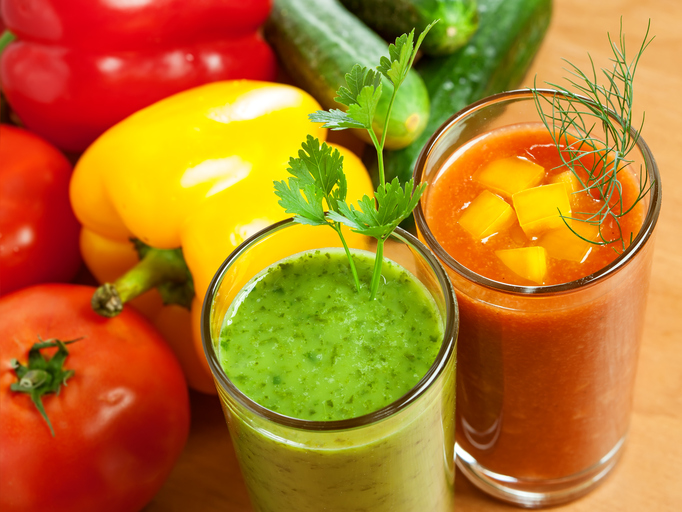 These come in individual tetra-packs of 150mL or 175mL.
These come in individual tetra-packs of 150mL or 175mL.
They add a richer more savoury flavour than fruit juice which is refreshing in hot weather.
-
Cottage cheese or ricotta
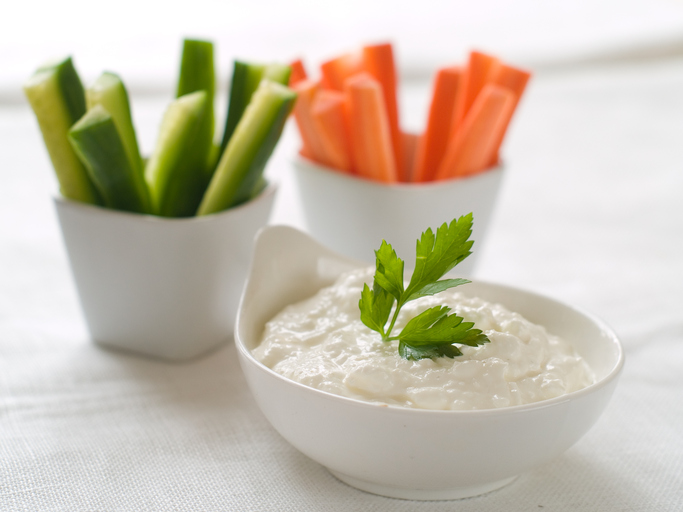 Pair half a tub with carrot or celery sticks and it will take you to dinner.
Pair half a tub with carrot or celery sticks and it will take you to dinner.
-
Raisin loaf
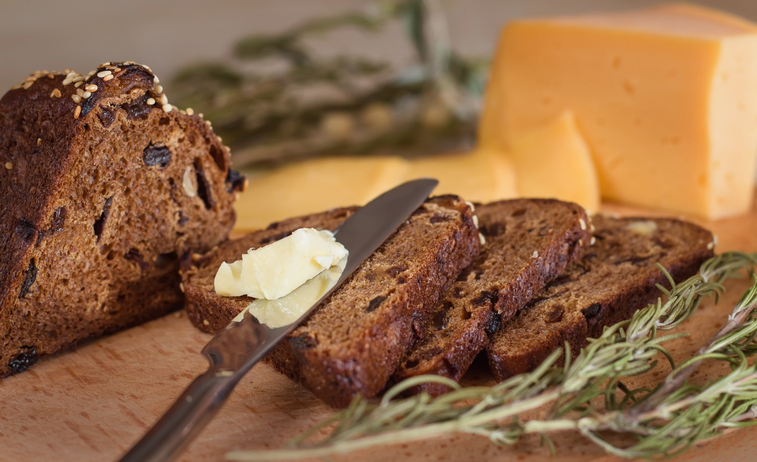 A snack doesn't have to come in a pack. A thick slice of fruit bread with a spread of cottage cheese or cheddar is filling and sweet.
A snack doesn't have to come in a pack. A thick slice of fruit bread with a spread of cottage cheese or cheddar is filling and sweet.
-
Low-fat choc milk
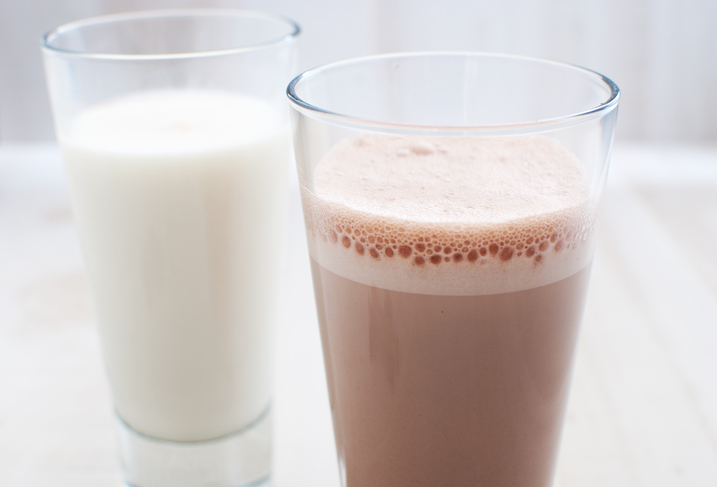 A carton of milk in the fridge is always a blessing.
A carton of milk in the fridge is always a blessing.
You can drink a glass of chilled low-fat milk neat or mix in a tablespoon Milo/Actavite/Jarrah and drink with a wheatmeal biscuit.
Or a cup of Ovaltine Light Break.
What to look for in a bought snack
Here are four nutrition numbers that can be used to classify a snack as “healthy”. Use these to judge a bar, muffin, biscuit snack, drink or anything else in a packet. Alternatively buy snacks with 4 Stars or higher.
Look for snacks that have:
- less than 600 kilojoules (150 Calories) per serve AND
- less than 3 grams of saturated fat per serve AND
- less than 200 milligrams of sodium (salt) per serve AND
- less than 15 grams of sugars per serve.
Plus if they are whole grain or high-fibre OR supply important nutrients such as calcium, iron or protein, that’s a bonus.
Tip:
Create a portion. Don't just open a pack of nuts or biscuits and munch mindlessly - take out what you want, put it on a plate or bowl and secure the rest.
For those who are kilojoule counting, here are 30 healthy snacks with less than 600 kilojoules (143 Cals)
½ bagel
1 slice fruit bread spread with butter or margarine
1 crumpet with jam
1 pikelet with honey
1 fruit scone
19 rice crackers
1 small breakfast cereal bar
1 small tin baked beans
20 almonds
14 cashews
1 egg with 1 slice bread (no butter or margarine)
1 cup reduced-fat milk with 2 teaspoons malt powder eg Milo, Horlicks, Acktavite
2 cheese sticks
200g tub no fat yoghurt
1 1/3 Tim Tams
1 muesli bar
½ iced cup cake
1/3 Danish pastry
2 small scoops vanilla ice cream
3 icy poles
31 smarties
6 small squares chocolate
8 marshmallows
1 cup pretzels
10 potato or corn chips
¼ individual meat pie
4 mini or 1 big sushi rolls
1 glass 250m soft drink (not the full 370mL can!)
Vegetable sticks (1 carrot, 2 celery stalks, ½ capsicum) dipped in tomato salsa
1 corn on the cob (no butter)
The bottom line
Your aim is to have a snack that’s filling, satisfies your hunger and doesn’t leave you hungry again in less than an hour. And one that’s not so hefty or overloaded with fat, salt, sugar and kilojoules.



